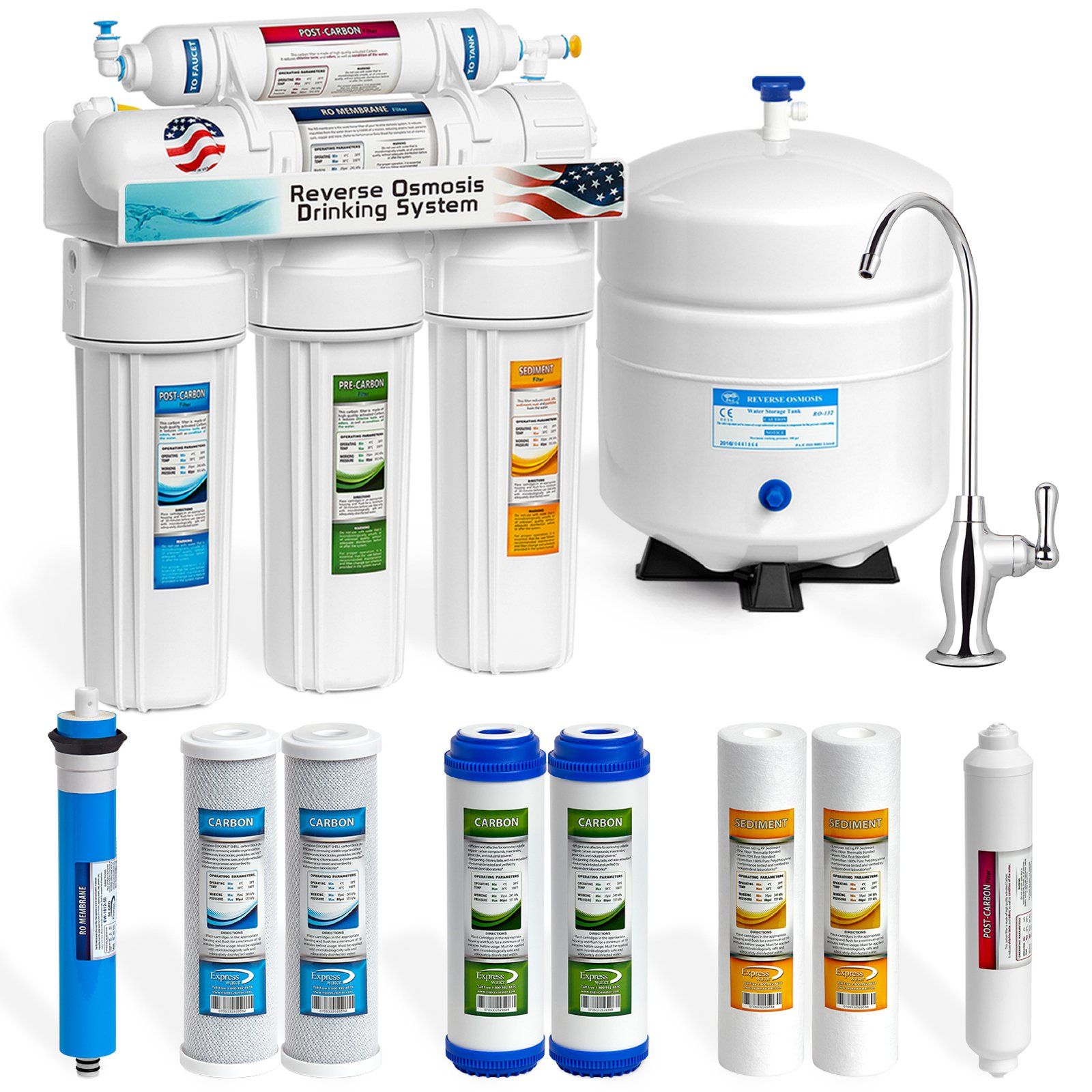Carbon Water Filter Vs Reverse Osmosis

It s not much but reverse osmosis filters only cost 0 18 per gallon and most carbon filters cost nothing at all.
Carbon water filter vs reverse osmosis. Reverse osmosis purification vs. Everything in water has a size. This filter removes sediment in the water like sand and salt. This is measured in microns.
The reverse osmosis process includes four steps. Next is the purification stage where the water is pushed through a fine membrane our eco hero 50 designed to remove almost all contaminants including lead total dissolved solids tds such as fluoride recycled sewage water and more. Whereas carbon filters work great for simple tasks like making water smell and taste a little better. The difference between reverse osmosis and carbon filtration is simply that size matters.
First water passes through a sediment filter. If you still aren t sure about water filters vs reverse osmosis systems you may consider a combination of both. Reverse osmosis what exactly is reverse osmosis. Reverse osmosis is great for hardcore water filtration for smell taste and safety.
In conclusion carbon filters and reverse osmosis water softeners are both awesome water filters. Carbon filters both reverse osmosis and carbon filters have advantages and disadvantages you should consider when choosing a filter for your home. It is important to note however that while these military grade mobile reverse osmosis water purification units rowpu do include reverse osmosis membranes they also include a wide variety of other treatment technologies such as ultraviolet light activated carbon pre filters post filters and very specialized filter media to fill in the gaps that ro itself does not address. Firstly the reverse osmosis water purification system filters the water through a carbon cartridge removing chlorine and sediment.
They require 3 kilowatts of electricity to filter one gallon of water at a cost of 0 35. Scientists and health professionals are now warning us of the dangers of fluoride which is primarily removed by reverse osmosis technology. Reverse osmosis systems can filter down to 001 micron. Carbon filters are great for removing chlorine which improves safety and taste but a single stage carbon filter isn t enough to sufficiently remove all the contaminants that may be present in tap water.
Which eliminates any odors or unpleasant taste. Second the water moves through a carbon filter. In this situation you would use a pure water filter using activated carbon installed where tap water is piped into your house as well as a reverse osmosis system to provide drinking water at your sink faucet. Distilled water filters are more expensive to operate and take longer to filter water than either carbon filters or reverse osmosis.
Reverse osmosis systems have the ability to filter out much smaller elements compared to carbon filters. Carbon filtered water is healthier than unfiltered tap water because it has removed metals chlorine and compounds that can cause certain health issues.














































